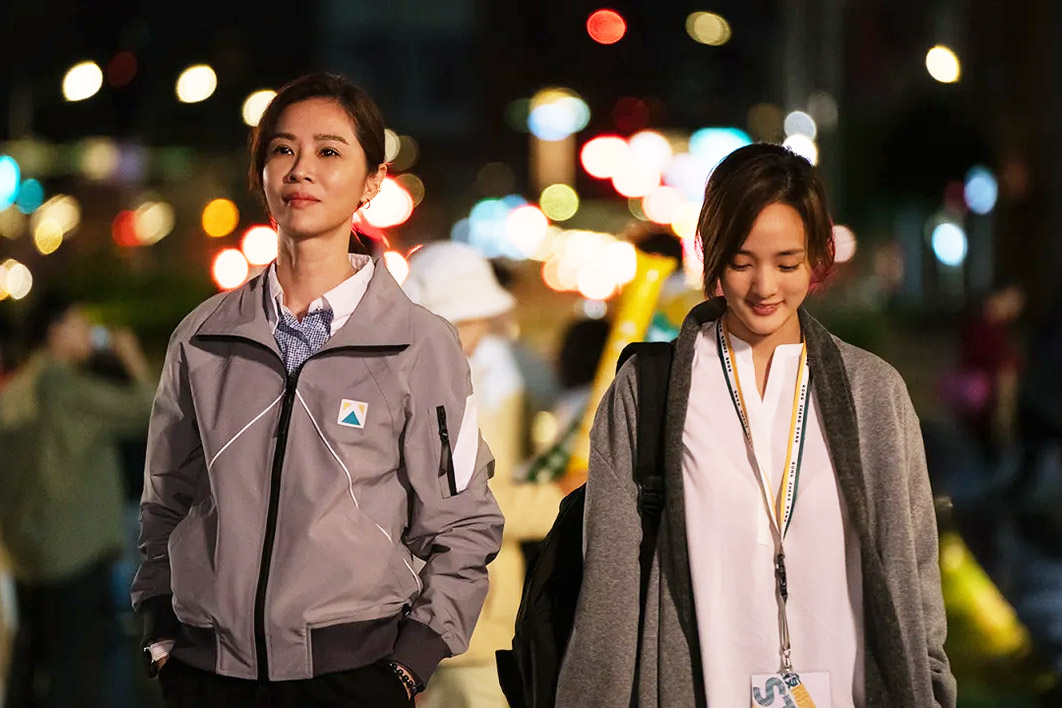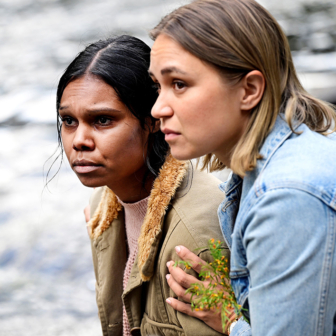When Australians think about Taiwan, a possible war with the People’s Republic of China is likely to come to mind. Such a war would not be confined to Taiwan itself: a US-led alliance would probably be involved, pitching Chinese against American troops for the first time since the Korean war. Australia would find it difficult to remain aloof.
With its focus on domestic politics, Netflix’s new hit series Wave Makers is a reminder that Taiwan is something more than a flashpoint. It’s a lively democracy dealing with a familiar range of modern problems. The series is a mini West Wing, Taiwan-style, with a #MeToo story at its heart — and, in a remarkable case of art informing life, it has made #MeToo an actual domestic political issue. At a moment of high tensions in the Taiwan Strait, this is the issue making news.
Wave Makers is one of several Taiwanese productions from the Netflix stable available in Australia. Internationally, Taiwanese television drama is less popular than Korean, but this series is rating well. Strong performances from a star-studded cast do credit to a script written by two women (Chien Li-ying and Yen Shih-chi) who have real-life experience of party politics.
The series follows media staffers of an out-of-office political party as they deal with political graft, the status of migrants, marriage equality, the death penalty and other politically sensitive issues through ten months of an election campaign. But the political becomes personal when a #MeToo story emerges, slowly becomes the dominant thread, and changes the course of the election.
Reviewers have remarked on the absence from the series of any mention of cross-strait relations, the elephant in the room of East Asian politics. In fact, this elephant is not easily bypassed. Banned in the People’s Republic of China, “harmonised” (censored, that is) on Douban, the main Chinese website for entertainment and culture, the series has inevitably ended up in the cross-strait space.
As an exercise in soft power, Wave Makers functions like Taiwan’s planned porcupine defence, covering “a large number of small things” instead of one big one. Chat on the mainland microblog site Weibo shows that viewers in China, breaching the great firewall to watch the series, are fascinated by the multifaceted portrayal of a thriving Chinese-speaking democracy.
In Taiwan itself, the series has gone to air at a sensitive time in the political cycle. Campaigning is under way for the presidential election on 13 January next year, and so far it’s a men’s race. The redoubtable President Tsai Ing-wen is coming to the end of her second term of office and (unlike her counterpart in China) is stepping down in accordance with the constitution. Her successor may be vice-president Lai Ching-te, whose election would extend the tenure of the Democratic Progressive Party, or DPP, into a third term. With Hou Yu-ih, the candidate for the old establishment KMT party, performing poorly in the polls, Lai’s main competitor looks like being a former mayor of Taipei, Ko Wen-je, who founded the Taiwan People’s Party in 2019.
As if they didn’t have enough to worry about (opinion polls, economic contraction, Chinese fighter jets, Russian frigates), these men are now likely to be reviewing their personal histories.
The #MeToo story in Wave Makers is firmly located in the political world. As early as episode two, rookie staffer Chang Ya-ching is having to deal with the office sleaze. An internal hearing leads nowhere: sexual harassment within the party is too delicate an issue to handle in the course of an election campaign.
As it happens, Ya-ching is also suffering at the hands of her former lover, who is running for election as vice-president on the other party ticket. Handsome, sophisticated and predatory, the aspirational VP has in his possession intimate photos of Ya-ching that he is refusing either to return or to destroy. A sensitive performance by twenty-five-year-old Gingle Wang shows a younger, happier Ya-ching in flashback, falling in love and embarking on a disastrous relationship that blights her job prospects and destroys her peace of mind.
The series reaches its climax with her revelation of the abuse on public television, the inevitable impact on her former lover’s family, and the eventual reverberations for the presidential campaign. Australians who watched Rachelle Miller’s exposé on Four Corners of her treatment at the hands of MP Alan Tudge will be struck by the parallel.
In Taiwan, the series was triggering. Among those who watched it was a former staffer for the DPP. “The first thing that happened,” she later related, was that she had “a good, big cry.” The next was that she went on Facebook to report on her own experience of sexual harassment at work.
Soon afterwards, a second female party worker came forward with an allegation of harassment by a fellow staffer. DPP youth affairs department head Tsai Mu-lin was criticised in both cases; according to the second complainant, he had not only failed to take her accusation seriously but had forced her to apologise.
The DPP moved swiftly to repair its reputation, holding a press conference on the afternoon of 2 June, issuing apologies and forcing resignations, including Tsai Mu-lin’s. But the damage had been done. One website began keeping a running tally of complaints after the style of Covid statistics. In the space of two weeks more than thirty women from various spheres had come forward with complaints. In China, where the DPP is synonymous with abandonment of One China policy, the official media greeted the party’s discomfit with schadenfreude.
What initially looked like a DPP problem quickly turned out to be a general one. A sexual harassment case was already running against a KMT legislator, and incidents involving other party members quickly came to light. Outside the political arena, the entertainment industry has been hit the hardest, with allegations of sexual abuse on the part of actors and television personalities continuing to surface at the time of writing.
Among the accused are Wave Makers star Huang Chien-wei, whose performance as the amiable head of the party’s media department and muddle-headed husband of a long-suffering wife won him hearts all over Taiwan. Prominent political dissidents of the 1989 generation have also been named, including by Wave Makers scriptwriter Chien Li-ying, who alleges that dissident poet Bei Ling groped her during a meeting about a play production.
For political parties, allegations concerning their own party members are hugely embarrassing. On 6 June, President Tsai herself went on Facebook with a strong statement on the duty of society to protect victims. The DPP is currently moving to improve legislation on sexual harassment. In both politics and the entertainment industry, resignations and apologies, and in some cases strong denials, have become frequent.
The impact on the election is hard to predict. On 30 June, at the end of a month’s wall-to-wall coverage of #MeToo, China intensified military exercises in the Taiwan Strait. The following day, Singaporean journalist Woon Wei Jong spoke with seven young Taiwanese about their voting intentions. The conversations were dominated by the cross-strait relationship and the different parties’ stance in relation to the mainland. Is #MeToo at all relevant in this context?
According to mainland emigrant Shangguan Luan, the answer is yes, although the effects are more likely to be seen in an impact on voting patterns than in #MeToo’s becoming an openly debated election issue. Among younger voters, she writes, a sensitivity to gender issues overlaps with the “naturally independent” sensibility characteristic of people born since the 1980s. This generation has grown up in an era when democracy has fostered a sense of self-determination while time has attenuated ancestral links with the mainland. The effect of #MeToo should be to hasten the drift away from the older, more conservative, and essentially more Chinese, attitudes that form the bedrock of the One China policy.
Among mainland viewers, as the same commentator remarks, responses to Wave Makers have varied from sneers about Taiwanese democracy to frank envy. The series’ themes necessarily highlight Taiwan’s political differences from the People’s Republic: the participation of women in political life at the highest levels, a multiparty system, political accountability, freedom of association, freedom of expression, and same-sex marriage (legalised in Taiwan in 2019). The #MeToo movement itself, now surging in Taiwan, has been met in China with arrests of activists instead of perpetrators. A pallid civil rights code introduced in 2022 passes responsibility for infractions ever further down the line of management.
These differences have yielded Taiwan a human rights dividend that is complicating international relations, especially vis-à-vis China. A highly self-conscious Taiwanese series like Wave Makers can hardly avoid being entangled in the resulting complex of issues. The opening scene of the series, a rally on election night, amounts to a call for recognition. The wave makers are warming up the party faithful: “You have voted for hope for Taiwan’s future!” “Let’s change Taiwan’s future together!” The crowd cheers. The name of the candidate flashes up on the screen: “Lin Yueh-chen!” The crowd roars: “Frozen garlic!”
“Frozen garlic” is a pun on the Mandarin word for “elect.” Cheeky and assertive, it captures something about Taiwan at this moment in history. If it joins the lexicon of terms banned by the Chinese government, no one will be surprised. •




